In October 2023, the fish processing complex was visited by correspondents of the world-famous German magazine Der Spiegel. As a result, an article about Russian aggression on the scale of the fish processing complex appeared in the magazine's January 2024 column. The published material reveals the results of the Russian missile attack on the enterprise in the spring of 2022:
Company bosses in front of the destroyed factory building in Kalyniwka Photo: [M] Alyssa Nothaft; Photos: Alexander Epp / DER SPIEGEL

[M] Alyssa Nothaft; Photos: Alexander Epp / DER SPIEGEL
Reconstruction in Ukraine
Fought back from the rubble
While the Ukrainians are still fighting in the east of the country, the war damage is laboriously being worked up in other parts of the country. Visiting a factory trying to return to = normal. By Alexander Epp, Oliver Imhof, Niklas Marienhagen and Achim Tack, Kalyniwka and HamburgIt could have been a reasonably normal working day for the employees of Ukrkharchopromkomplex, UHPK for short, in Kalynivka, 20 kilometers before Kyiv.
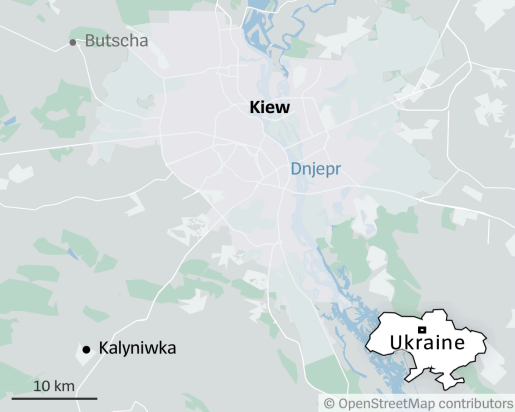
What happens in the factory day after day is not decisive for the war. The company does not build tanks, does not manufacture weapon parts, does not even store large quantities of fuel. She processes fish. Pike perch, for example. It is disassembled, frozen, packed and sent abroad here. Also to Germany, where the filets end up in large retail chains. When the war of aggression started in February 2022, the company stopped production. Exactly one month later, on the 24th. March, fish and seafood should finally roll over the assembly lines again. Instead, hell broke loose.
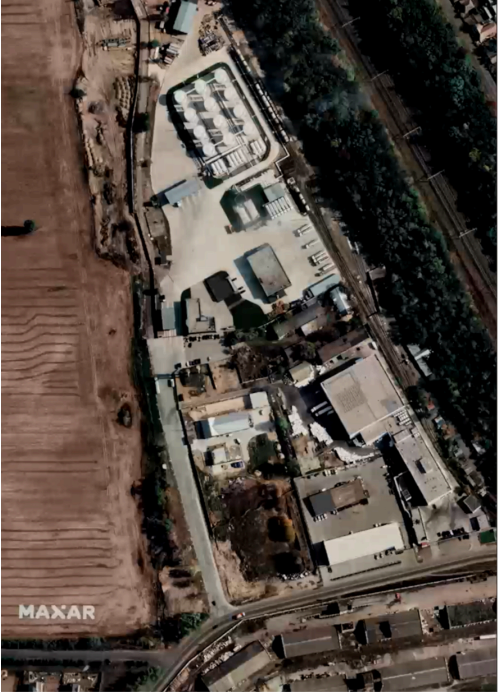
At two o’clock in the morning, just a few hours after the reopening, a cruise missile pierces the roof of the factory’s cold store. The heat generated by the explosion is so enormous that steel beams deform like chewing gum. Several fires break out between the metal racks on which the food is stored. The force of the explosion causes large parts of the roof to collapse, side walls are shredded. The shock has not yet been properly digested, because a few hours later another detonation shakes the industrial area in which the fish factory is located. A second cruise missile hits the neighboring grounds of the company KLO just meters away. There is a fuel warehouse there that goes up in flames. In the following days, the extent of the devastation is revealed. Not only food burns in the fire, but also tons of packaging material. "Three thousands tons of fish and seafood were spread over the company area," says boss Tetyana Bilodid. "The stench was disgusting." Shortly after the attack, the clean-up work begins, which will drag on over the coming weeks and months. Parts of the adjacent production plant that were affected by the attack also need to be renewed. As of June, the site is still being shoveled free. A large part of the area on which the cold store once stood is now fallow. Whether it was the oil depot that spoked up the attack, the Ukrainian air defense, which was possibly nearby at that time, or just Russian arbitrariness - the company bosses shrug their shoulders - in the end it didn't matter, the company was on the ground afterwards. Fortunately, no one was killed, but the damage was immense, the company threatened its existence. The company accounts for the losses caused by the attack on the equivalent of almost 18 million euros. The majority of stocks were no longer edible, customers could not be served and partially jumped off - UHPK had to temporarily stop operations. In addition, there was the fear of further Russian air raids. The permanent state of war unsettles customers, says Lars Hansen, Co-Managing Director of UHPK. Insurance companies would not take the risk of insuring goods in a war zone, so most customers want to keep their products as short as possible in the company's facilities - a logistical challenge.
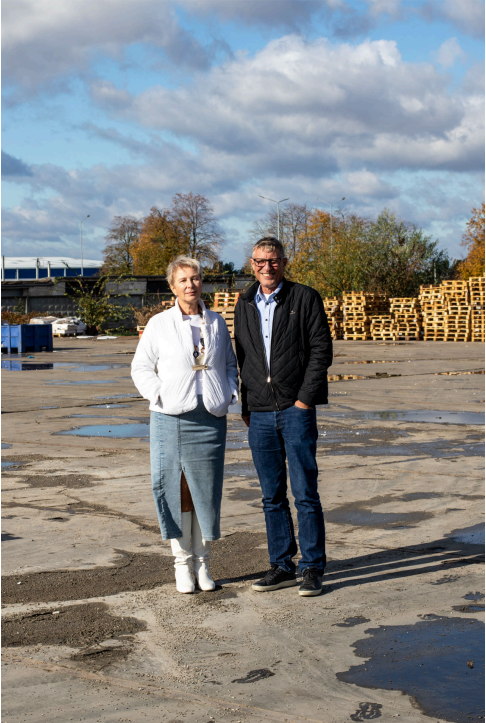
site of the former cold store Alexander Epp / DER SPIEGEL
After the Russian soldiers left the north of Ukraine at the end of March 2022, more peace returned to the area. Production had already started again after three months, but the reconstruction was hard. Although UHPK received a restructuring aid of 200,000 euros from the state, there was no money from the insurance company. A loan from Oschadbank helped with the reconstruction. "We are operating almost again at the same capacity as before the war," says Hansen. The company also used the reconstruction to modernize the company. Currently, almost 100 employees are processing fish again. And at least a part of the foreign clientele came back.
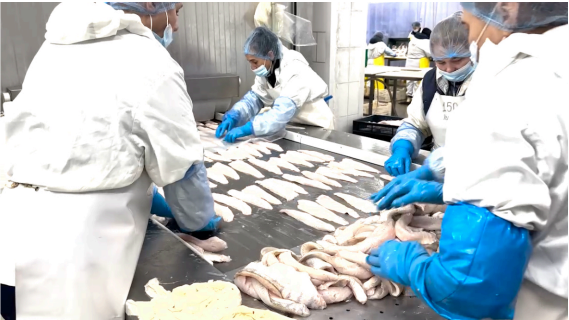
Epp
/ DER SPIEGEL
After the violent air raids in the first year of the war, the UHPK workforce hopes to be spared further attacks this year. The improved air defense around Kyiv has ensured a certain degree of normality, at least in this region. However, the danger is far from being eliminated. Since the end of November, siren noise has been sounding almost daily in the capital and in the surrounding regions. On the night of Friday, Russia had fired around 160 missiles, cruise missiles and drones of various types at Ukraine. At least 39 people died in the most serious attack since the beginning of the war.
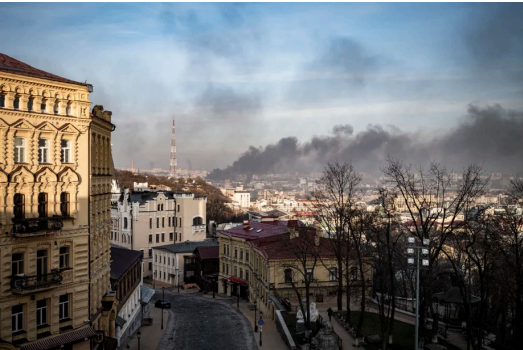
Smoke over Kyiv in photo: Nicolas Cleuet / dpa
Many had previously feared that Russia would target the Ukrainian infrastructure more strongly again with falling temperatures in order to bomb the country into the darkness and cold. The people of Ukraine cannot do much more than get to safety and hope for their anti-aircraft defense. When asked whether they are taking further precautions to protect the company, Hansen only smiles, tortured and crosses his fingers.
Collaboration: Halyna Rudyk
Стаття опублікована 02.01.24 в німецькому щотижневому журналі “DER SPIEGEL”: https://www.spiegel.de/ausland/ukraine-krieg-wie-eine-fabrik-sich-in-die-normalitaet-zurueckkaempft-a-528949a7-4935-4554-8306-e2d8ef482d16?giftToken=1cb0c205-787c-49ff-bcd3-a88a68ed8228


